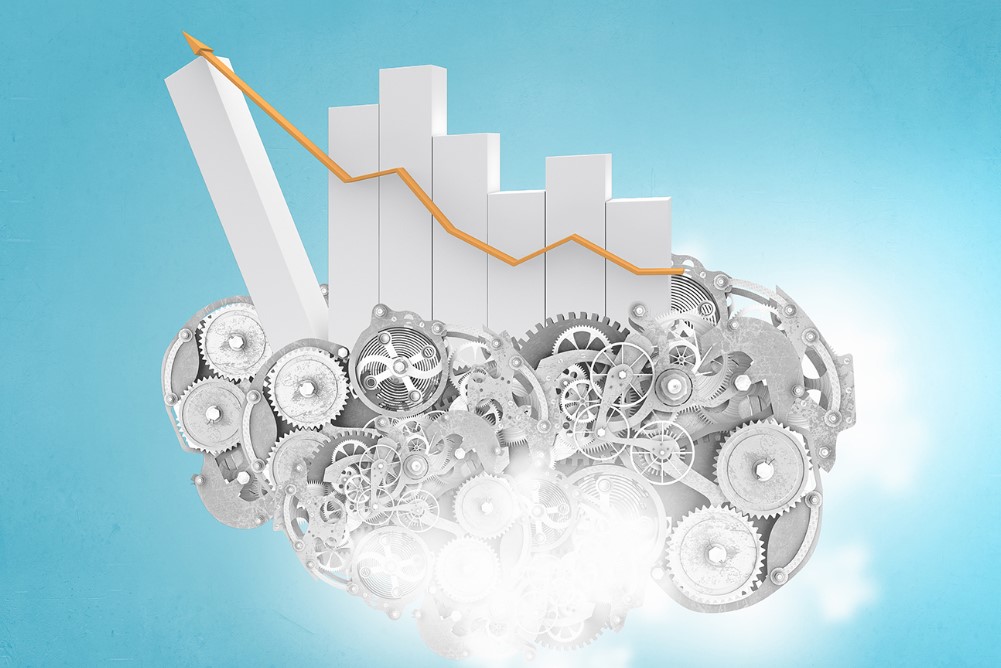The World Bank’s chief economist, Indermit Gill, has lauded India and the US for providing good news to the global economy, despite the challenges posed by the Covid-19 pandemic and the rising interest rates. He said that both countries have shown resilience and dynamism in their economic recovery, and have contributed to the global growth prospects.
Gill was speaking at a press conference on Wednesday, ahead of the annual meetings of the World Bank and the International Monetary Fund (IMF) in Marrakech, Morocco. He said that India and the US were among the few large economies that have not faced any major troubles due to the external shocks, such as the supply chain disruptions, the energy crisis, and the inflationary pressures.

“In spite of all the shocks, we haven’t seen any big economy get into trouble,” he said. “India and the US are providing good news to the global economy.”
India: The fastest growing major economy
Gill praised India for its impressive growth rate, which has made it the fastest growing major economy in the world. He said that India’s growth projection for the current fiscal year was 6.3%, which was unchanged from the previous estimate. He added that India’s growth was expected to accelerate further in the next fiscal year, reaching 7.1%.
He attributed India’s strong performance to its effective management of the pandemic, its robust vaccination drive, its structural reforms, and its fiscal and monetary stimulus measures. He said that India’s economic recovery was broad-based, with all sectors showing positive signs of growth.
“India has done remarkably well in dealing with the pandemic,” he said. “India has also undertaken some very important reforms, such as the GST (goods and services tax), the bankruptcy code, the labor laws, and the farm laws. These reforms will have long-term benefits for India’s productivity and competitiveness.”
He also commended India for its leadership role in providing vaccines to other developing countries, especially in Africa. He said that India’s vaccine diplomacy was a “great example of global solidarity” and a “win-win situation” for both India and its partner countries.
US: The driver of global demand
Gill also applauded the US for its strong economic performance, which has boosted the global demand and confidence. He said that the US economy was expected to grow by 5.9% this year, which was slightly lower than the previous estimate of 6.1%, but still higher than most other advanced economies. He added that the US growth was likely to moderate to 4% next year, as the fiscal stimulus fades and the monetary policy tightens.
He credited the US for its swift and massive response to the pandemic, which included a $1.9 trillion relief package, a $1 trillion infrastructure bill, and a $3.5 trillion social spending plan. He said that these measures have helped to support the income and consumption of millions of Americans, as well as to create jobs and invest in public goods.
“The US has been a very important driver of global demand,” he said. “The US has also shown a lot of leadership in supporting multilateral initiatives, such as the debt relief for poor countries, the special drawing rights allocation by the IMF, and the climate finance pledge.”
He also acknowledged the challenges faced by the US economy, such as the labor market shortages, the supply chain bottlenecks, and the inflationary pressures. He said that these issues were likely to be transitory, but required careful monitoring and policy adjustments.
Global outlook: Cautious optimism
Gill concluded his remarks by presenting a cautiously optimistic outlook for the global economy, which he said was expected to grow by 5.6% this year and 4% next year. He said that these projections were slightly lower than the previous ones, due to the emergence of new variants of Covid-19, the uneven vaccination progress across countries, and the tightening of financial conditions.
He said that there were significant risks and uncertainties in the global scenario, such as the potential spread of new variants of Covid-19, the possible social unrest due to rising inequality and poverty, and the geopolitical tensions over trade and technology. He urged all countries to cooperate and coordinate their policies to address these challenges and to ensure a sustainable and inclusive recovery.
“We are not out of the woods yet,” he said. “We need to remain vigilant and flexible in our policy responses. We also need to work together as a global community to tackle the common problems that we face.”







